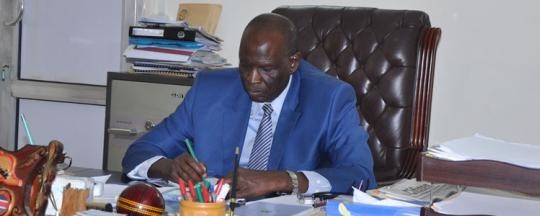The International Monetary Fund (IMF) says that the South Sudanese government has set an exchange rate between the dollar and the South Sudanese pound that is not “realistic,” alleging that the country’s currency policy results in a “hidden transfer of resources” to individuals with “privileged access.”
Last Friday the independent Indian Ocean Newsletter reported that an internal European Union memo had characterized South Sudan’s system of governance as ‘kleptocratic’ – a Greek term meaning “rule by theives.” The report added that the existing gap between the official exchange rate and the street rate “benefits a small number of privileged people close to the ruling circles.”
These conclusions echo statements made by the International Monetary Fund in a more extensive report published in December 2014 after consultations with the South Sudanese government.
According to the IMF’s latest Article IV Consultation Report for South Sudan, the black market or ‘parallel market’ began in September 2011 when the official rate began to diverge from the rate used in street sales. The divergence has increased significantly over the last year.
“The parallel market emerged in September 2011 as the Bank of South Sudan (the central bank) decided to peg the currency at an overvalued level and ration foreign exchange. The rationing entails a hidden transfer of resources from the government to those with privileged access to foreign exchange at the official rate,” reads the report.
The IMF report hinted that some foreign exchange bureaus are linked to the black market, noting that the number of banks and foreign exchange houses is “excessive” compared to the size of the country’s financial system and that these financial institutions are not well regulated.
“Generous licensing of new banks and foreign exchange houses pose risks, including of money laundering and illicit transactions, not least because of limited capacity to supervise them,” the IMF reported, urging the country’s central bank to closely regulate licencees.
In spite of the high number of foreign exchange bureaus, importers are not able to access enough dollars at the official rate: “By mid-2013, there were 79 foreign exchange houses licensed in South Sudan. A significant part of goods are imported at the parallel market exchange rate while only a small number of transactions (i.e. imports of food, medicine, fuel, and construction materials) benefit from foreign exchange acquired at the official exchange rate.”
IMF’s Executive Board has recommended that South Sudan’s central bank change the official exchange rate to a “realistic level.”
“The reform will eliminate the large transfer of funds from the government to a few beneficiaries and provide reliable and transparent access to foreign exchange for the public and businesses.”
“Unification of the exchange rate will help reduce the large demand for dollars created by the artificially low price at which they could supposedly be purchased. It will also signal a commitment to transparency and remove incentives for corruption.”
However, the report also warned that “strong vested interests and lack of political resolve could prevent reform” of the foreign exchange system.
Photo: Governor of the Bank of South Sudan Kornelio Koriom
Related:
Officials profiting from South Sudan dollar shortage: report (3 May)
War Economy: S Sudan increases money supply (31 March)




